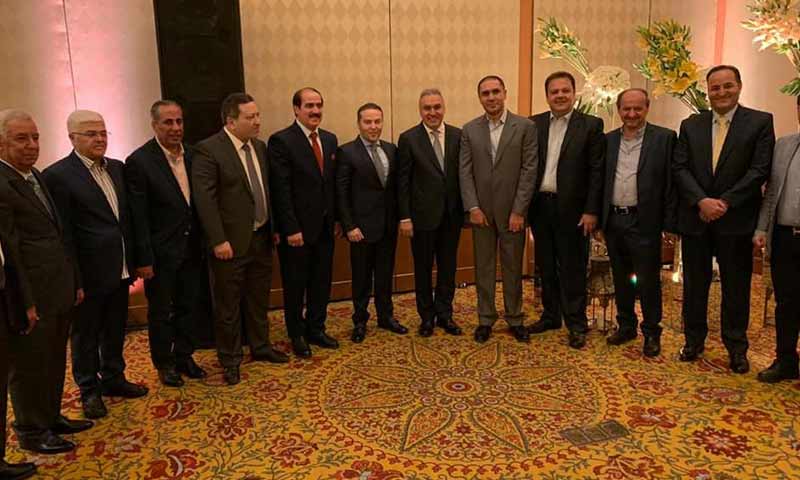Ibrahim al-Olabi, the director of the “Syrian Legal Development Program (SLDP),” has commented on the decision of the European Union (EU) to lift economic sanctions against Syrian investors in the Marota City project in Damascus.
In an interview with Enab Baladi, al-Olabi pointed out that the EU decision of lifting economic sanctions on Monday, 1 June, in this way along with the message it carries, is the first of its kind.
He said the decision came due to some investors’ withdrawal from the project and the dissolution of their company that had investments in the Marota City project.
Al-Olabi viewed the decision as a message from the EU to Syrian investors and businesspeople who have committed violations due to their support to the Syrian regime.
He added that economic sanctions are used as a tool to change sanctionable behavior, whether for individuals or companies.
Al-Olabi confirmed that this move by the EU of lifting its economic sanctions could be a step and a message to those included in the restrictions to change their attitude towards the Syrian regime and stop supporting it to be removed from the sanctions list.
Al-Olabi is the chairperson of the UK-based non- governmental organization, the SLDP, which includes a special unit on human rights and commercial business. The organization tackles the sanctions file.
The Council of the EU issued a statement on 30 May announcing the lifting of economic sanctions against both businessmen Maen Rizk Allah Haykal and Hayan Mohammad Nazem Qaddour, the founders of “Oxide for Development and Investment Company.”
The decision also included the “Developers Private Joint Stock Company,” a joint project with 17.7 million USD capital between “Damascus Cham Holding Company” and “Tajawuz for Development and Investment Company,” which also has a contributing part in the investments of Marota City project.
According to the EU press release, these figures were lifted from its sanctions list because they have “halted their sanctionable activities.”
Nevertheless, al-Olabi thinks that the reason for lifting the sanctions is the dissolution of the “Developers” company.
The “Developers” company was established in February 2018 by an agreement between “Damascus Cham Holding Company” of Damascus province, which is responsible for the Marota City project, and “Oxide for Development and Investment Company” that belongs to the previous investors, Haykal and Qaddour.
The EU has imposed sanctions on economic and political figures, including the Head of the Syrian regime, Bashar al-Assad, and his family members, following the outbreak of the Syrian revolution in 2011. The EU sanctions also included companies that have been working with the regime.
The EU imposed restrictive measures including freezing the assets of the Central Bank of Syria (CBS), and a ban restricting exports to Syria such as technological equipment that might be used for internal repression (monitoring or interception of internet or telephone communications,) as well as a restriction on importing the Syrian oil.
The sanctions provide for freezing the assets of the individuals included in them, preventing access to the EU territories, and banning dealings with the entities and companies mentioned in the sanctions list.
The Marota City investment is an urban planning project announced by the Syrian regime’s president, Bashar al-Assad, in 2012, behind the informal settlements of the al-Razi area and the Mezzeh groves.
In 2019, Syrian famous investors and businessmen such as Rami Makhlouf, Samer Fawz, and Mazen al-Tarazi, got involved in the project.











